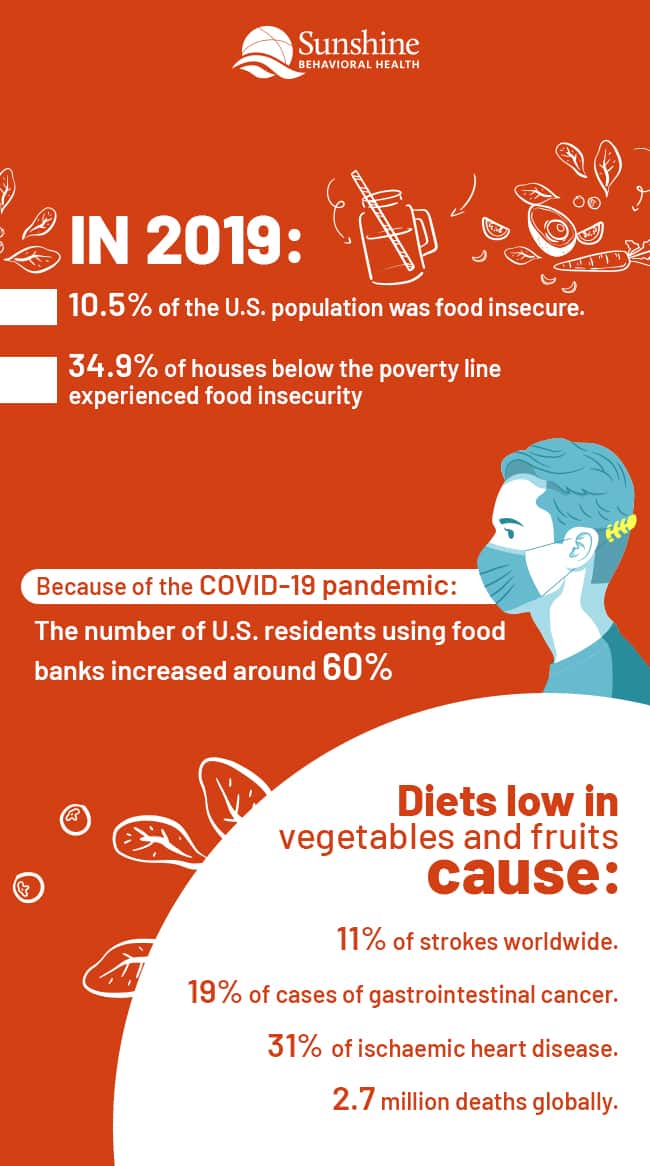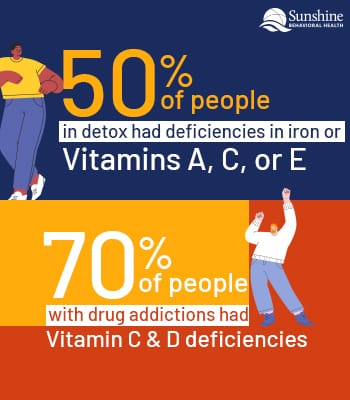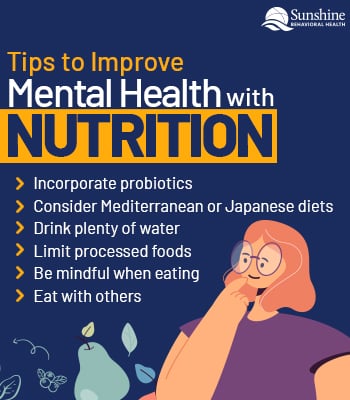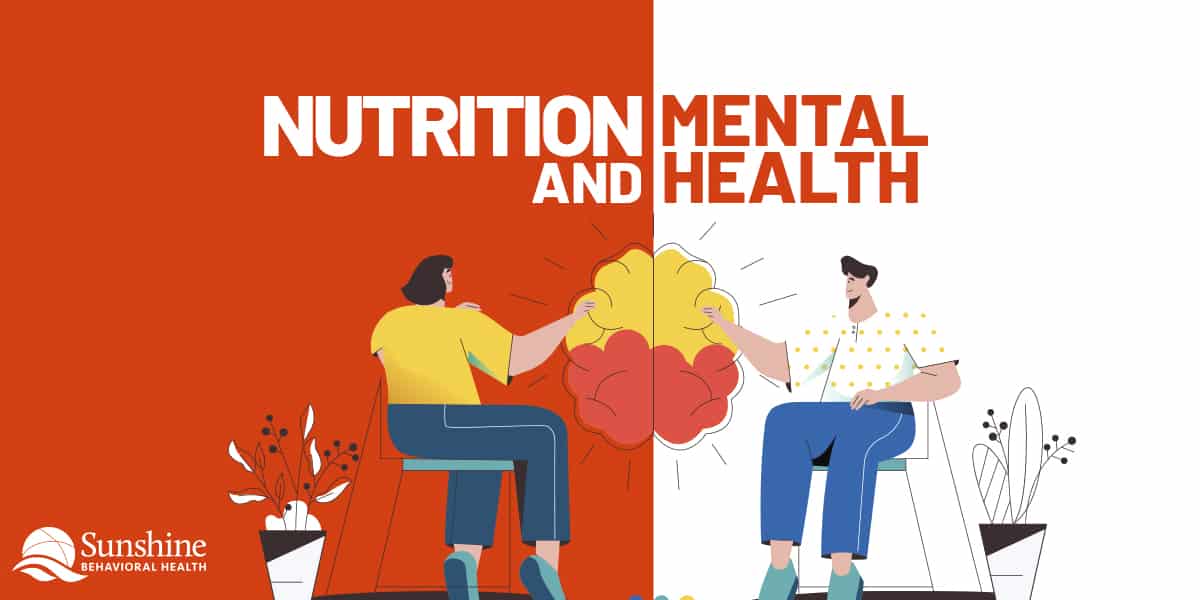Nutrition and mental health: why is the relationship important?
You are truly what you eat. What you eat can have an impact on how you feel, function, and look.
Evidence also indicates that healthy diets might also promote good mental health.
How the foods you eat affect how you feel
Consuming a variety of items from different food groups is a healthy practice for many reasons. Nutrition is just one healthy practice. There are other factors that may also bolster mental health, and there are many that may threaten it.
Protective factors for mental health
Many factors may contribute to mental and physical health. For example, adolescents may experience better mental health if they:
- Possess high self-esteem and can regulate their emotions.
- Practice positive problem-solving and coping skills.
- Live in psychological and physical safety with access to resources and activities.
- Come from families that provide support, limits, and well-defined expectations.
- Engage and connect with others.
- Develop intellectually and physically in positive ways.
Risk factors for mental health
While some things may contribute to better mental health, there are also factors that may increase the likelihood of mental illness. They include:
- Child maltreatment (abuse, neglect)
- Discrimination
- Emotional trauma
- Isolation
- Poverty and violence
- Limited economic, social, or health care opportunities
- Drug and alcohol abuse and addiction
The role of food in preventing mental health problems
When it comes to mental health, diet could be protective measures or risk factors.
Poor physical health
Diets low in vegetables and fruits cause 2.7 million deaths worldwide every year. According to the World Health Organization (WHO), not eating enough of these vital foods causes:
- 11% of strokes worldwide.
- 19% of all cases of gastrointestinal cancer.
- 31% of global ischaemic heart disease (heart problems caused by the narrowing of the arteries).
Low or absent nutrients can produce a host of health problems, from vitamin A deficiencies that cause eye problems to deficits in zinc that can harm growth, the immune system, and other processes.
In addition, chronic pain may be related to depression, exhaustion, stress, and other problems. This indicates the close relationship between physical and mental health.
 Poverty
Poverty
Poverty prevents many people from enjoying well-balanced nutrition and can thus elevate mental health risks.
In 2019, 10.5% of the U.S. population was food insecure. That same year, 34.9% of households that earned incomes that were under the federal poverty line experienced food insecurity.
Food insecurity occurs when people don’t have access to high-quality foods, a variety of foods, or the foods that they want. They may be eating less food and experiencing disrupted eating patterns because food isn’t available.
Such conditions occurred because of the COVID-19 pandemic. Some workplaces closed and people quit jobs to take care of family members, educate children, or protect their health.
Many struggled economically and required assistance. Because of the pandemic, the number of U.S. residents using food banks increased around 60%, while the chief executive officer of a food bank in Atlanta, Georgia noted that his facility served 70% more food.
Comorbidities
Obesity
Even when food is available, it sometimes lacks nutritional value. Foods low in nutrients and a lack of physical activity can contribute to people being overweight and obese.
Obesity occurs when people have excessive amounts of body fat. It can cause or worsen many physical conditions, including diabetes and cardiovascular diseases. Excess weight is also related to psychological conditions or phenomena, including:
- Eating disorders
- Depression
- Anxiety
- Physical or sexual abuse
- Poor self-esteem
- Reduced quality of life
- Discrimination and stigmas
Substance Use Disorder
Obesity can depress people and damage their self-esteem. To cope with these feelings, some people may turn to drugs or alcohol. Repeated uses of drugs and alcohol can lead to substance use disorder or addiction.
How Substance Use Disorder Disrupts Nutrition
Misusing drugs and alcohol can disrupt nutrition in various ways.
Drugs
Drug abuse and addiction can rob the body of much-needed vitamins and minerals. According to various studies:
- 50% of people undergoing detoxification for substance use disorder had deficiencies in iron or vitamins A, C, or E.
- 70% of people with drug addictions had vitamin D deficiencies and low vitamin C levels.
Another study has found that a vitamin D deficiency can elevate the risks of opioid addictions. If they had moderate deficiencies of vitamin D, people had a 50% higher chance of using opioids, if they had severe deficiencies, they had a 90% higher chance.
Alcohol
High levels of alcohol consumption might create deficiencies of vitamin A as well as multiple B vitamins, including:
- Thiamine (vitamin B1)
- Riboflavin (vitamin B2)
- Pantothenic acid (vitamin B5)
- Vitamin B6 (pyridoxine)
Serious deficits in B vitamins such as thiamine can cause brain damage that may be permanent if people don’t receive timely treatment.
The role of diet in relation to specific mental health problems
Poor diets, a lack of nutrients, and being overweight or obese can contribute to specific mental illnesses.
Depression
Nutritional deficits can lead to obesity. Excess weight can lead to depression and vice versa.
A review of multiple studies discovered that people with obesity had a 55% elevated risk of experiencing depression. It also found that people with depression had a 58% higher risk of experiencing obesity.
Schizophrenia
Schizophrenia and diet also appear to be linked. Researchers have found that people born with vitamin D deficiencies had a 44% higher risk of developing schizophrenia.
People with schizophrenia often have low levels of folate (also known as folic acid and vitamin B9) and vitamin B12 (also known as cobalamin), so supplements of these vitamins may ease symptoms of the disorder.
Dementia
Vitamin D deficiencies might also double the risks of Alzheimer’s disease or other forms of dementia, according to some researchers, but more research is necessary.
Like schizophrenia, it appears that dementia could also be linked to low levels of vitamin B12 (cobalamin).
Attention-deficit hyperactivity disorder (ADHD)
Studies have indicated that people with attention-deficit hyperactivity disorder (ADHD) also often have deficiencies of the nutrient zinc. Medications for ADHD can also curb the appetite and ultimately affect nutrition.
Meanwhile, foods with sugar, artificial dyes, and preservatives can also affect people with ADHD. Instead, they should strive to eat a well-balanced diet that’s high in protein and consider using supplements of vitamins and minerals if their health care providers recommend them.
Substance use disorder
Alcohol and drug addiction can harm a person’s mental and physical health. Surveys reported that an estimated 17.9% of U.S. adults (43.4 million people) experienced a form of mental illness in 2015 and 8.1 million of these people had a substance use disorder and another form of mental illness.
How Substance Use Disorder Disrupts Nutrition
 Drug abuse and addiction can interfere with nutrition by:
Drug abuse and addiction can interfere with nutrition by:
- Decreasing or increasing one’s appetite.
- Damaging the teeth and a person’s ability to eat.
- Producing cravings for sugary foods instead of healthier options.
- Diverting money to pay for drugs instead of food and other necessities.
- Reducing a person’s energy and motivation to obtain food or cook it.
Alcohol
Alcohol can also harm people’s diets by:
- Reducing the amount of healthy food they ingest in favor of alcohol.
- Limiting the absorption of nutrients.
- Interfering with metabolism.
- Damaging the brain and disrupting people’s abilities to eat or care for themselves in other ways.
When people use drugs and alcohol, their bodies are trying to detoxify. This means their bodies are working hard to remove those substances from their systems instead of using and storing much-needed nutrients and using them for other processes. Without such nutrients, people can be weak and more susceptible to illnesses.
The Role of Nutrition During Rehab
Due to the harm that alcohol and drugs can do to diets, addiction treatment programs often incorporate nutrition as part of their care. Good nutrition can also have a positive impact on mental health.
Tips to Improve Mental Health with Nutrition
 Some ways people could use nutrition to boost their mental health and recover from addictions is by:
Some ways people could use nutrition to boost their mental health and recover from addictions is by:
Incorporating probiotics in their diets. Consuming fermented foods such as yogurt, cheese, sauerkraut, kimchi, and miso may introduce probiotics into the body that could boost the production of microorganisms that improve gut health, improve mental functioning, and reduce anxiety and stress.
Considering the Mediterranean or Japanese diets. The Japanese diet features large amounts of grains and vegetables, while the Mediterranean diet highlights vegetables, fruit, fish, and olive oil. Studies have found that the Mediterranean diet can lower depressive symptoms and that consuming rice and miso in the Japanese diet may have positive effects on “impulsiveness, depressiveness, and sleep quality.”
Drinking plenty of water. Researchers found that drinking water may decrease the risks of depression and anxiety. Adequate amounts of water may prevent dehydration, which could hurt focus and energy levels.
Limiting processed foods that are high fat, refined sugars, and sodium. Consuming such foods can lead to obesity, diabetes, and heart conditions and may contribute to reduced brain functioning and depression.
Paying attention to why and when they’re eating. Since people sometimes eat (and choose unhealthy foods) when they’re sad or under stress, people might want to note if they’re eating because they’re hungry or if they’re eating if they’re sad, anxious, bored, or for other reasons.
Eating with others. Sharing meals and socialization can improve mental health and connections. In addition, spending time with others gives people opportunities to check up on their loved ones and determine if they need assistance with their mental or physical well-being.
There’s a connection between how people eat and how they feel. Good mental health starts with good eating practices. cdc.gov – Mental health information Food, Mood, and Brain Health: Implications for the Modern Clinician – Article for health care providers about brain health and food headtohealth.gov.au – Information and resources about the connections between mental health and food health.gov – Dietary guidelines from the U.S. Office of Disease Prevention and Health Promotion and other information about health and nutrition health.gov.au – Explanations about mental health, food, and drink healthypeople.gov – Resources about nutrition and weight status nutrition.gov – Materials and handouts about nutrition
Resources
Sources
Medical disclaimer:
Sunshine Behavioral Health strives to help people who are facing substance abuse, addiction, mental health disorders, or a combination of these conditions. It does this by providing compassionate care and evidence-based content that addresses health, treatment, and recovery.
Licensed medical professionals review material we publish on our site. The material is not a substitute for qualified medical diagnoses, treatment, or advice. It should not be used to replace the suggestions of your personal physician or other health care professionals.






